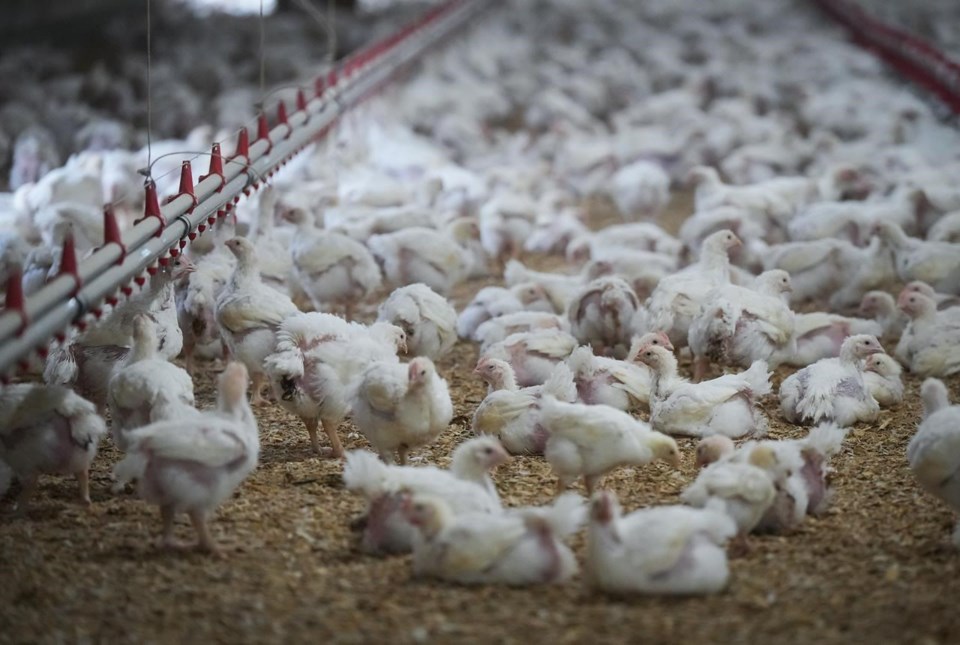VANCOUVER — More than 50 poultry farms in British Columbia have been infected with avian flu since October, but animal health officials say that rate is slowing as the fall migration of wild birds ends.
The Canadian Food Inspection Agency said Thursday 47 commercial farms and five small-flocks have been infected with the highly pathogenic H5N1 virus this fall.
sa╣·╝╩┤½├Į's Agriculture Ministry says in a news release that it is working with the agency and sa╣·╝╩┤½├Į's poultry producers to ensure enhanced biosecurity measures are in place to limit the spread of disease.
If the flu is detected in a flock, all the birds on the farm must be destroyed and the CFIA said in November about five million birds in sa╣·╝╩┤½├Į have been culled due to H5N1 since the first case was detected in April 2022.
The ministry says avian flu poses a low risk to public health with no risk to food safety, and there are currently no poultry food supply disruptions due to the virus.
The sa╣·╝╩┤½├Į government introduced a $5-million farmed animal disease program this year that helps farmers beef up their biosecurity measures, equipment for disease response, research and training to better prevent the flu from entering the barns.
This report by The Canadian Press was first published Dec. 14, 2023.
The Canadian Press



